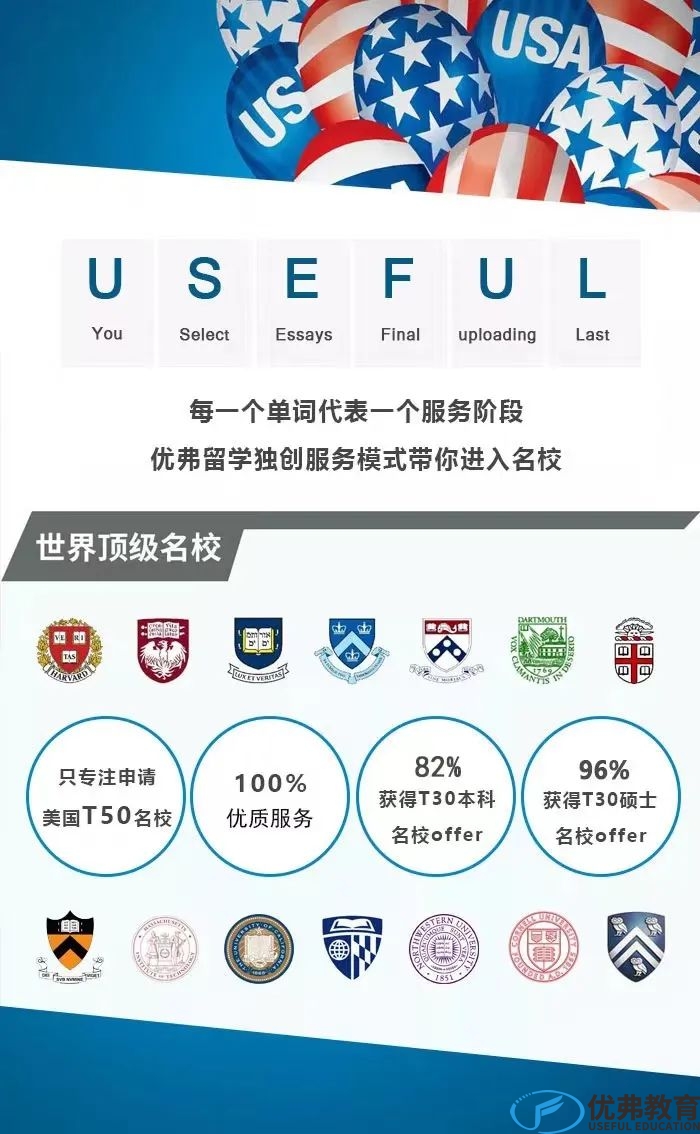哥倫比亞大學(xué),、布朗大學(xué)的補(bǔ)充文書(shū)如何寫(xiě)??jī)?nèi)附招生官真實(shí)點(diǎn)評(píng)
日期:2022-08-26 10:52:12 閱讀量:0 作者:b老師出色的申請(qǐng)文書(shū)對(duì)于成功進(jìn)入大學(xué)至關(guān)重要,,而補(bǔ)充文書(shū)則是說(shuō)服招生官你最適合這所大學(xué)的最佳機(jī)會(huì),。今天讓我們來(lái)一起來(lái)看看哥倫比亞大學(xué)、普林斯頓大學(xué),、布朗大學(xué)和范德堡大學(xué)等名校最新補(bǔ)充文書(shū)為例,,看看到底應(yīng)該怎么寫(xiě)??jī)?nèi)附招生官真實(shí)點(diǎn)評(píng)哦,。

2022-2023申請(qǐng)季,,有好幾所大學(xué)換上了新的補(bǔ)充文書(shū)題目,主要圍繞兩個(gè)主題:What Brings you Joy(什么能給你帶來(lái)快樂(lè)),,和How do you engage with people experiences and viewpoints that differ from your own(你如何與自己經(jīng)歷和觀點(diǎn)不同的人打交道),。
1、What Brings you Joy,?
What brings you joy (什么能給你帶來(lái)快樂(lè))? 不同的學(xué)校對(duì)這道題的問(wèn)法會(huì)稍有區(qū)別:
哥倫比亞大學(xué)
In Columbia’s admissions process, we value who you are as a unique individual, distinct from your goals and achievements. In the last words of this writing supplement, we would like you to reflect on a source of happiness. Help us get to know you further by describing the first thing that comes to mind when you consider what simply brings you joy.
在哥倫比亞大學(xué)的錄取過(guò)程中,,我們重視你作為一個(gè)獨(dú)特的個(gè)體,有別于你的目標(biāo)和成就,。在這篇附加文書(shū)的最后幾句話里,,我們想讓你反思一下幸福的源泉。當(dāng)你考慮什么能給你帶來(lái)快樂(lè)時(shí),,你首先想到的是什么,,通過(guò)描述來(lái)幫助我們進(jìn)一步了解你。
布朗大學(xué)
Brown students care deeply about their work and the world around them. Students find contentment, satisfaction, and meaning in daily interactions and major discoveries. Whether big or small, mundane or spectacular, tell us about something that brings you joy.
布朗大學(xué)的學(xué)生對(duì)他們的工作和他們周?chē)氖澜绶浅jP(guān)心,。學(xué)生們?cè)谌粘,;?dòng)和重大發(fā)現(xiàn)中找到滿足感、滿意度和意義,。無(wú)論是大的還是小的,,平凡的還是壯觀的,請(qǐng)告訴我們一些帶給你快樂(lè)的事情,。
麻省理工學(xué)院
We know you lead a busy life, full of activities, many of which are required of you. Tell us about something you do simply for the pleasure of it.
作為高中生,,你要完成學(xué)校規(guī)定的各種任務(wù),生活一定很忙碌,。有什么事是你單純?yōu)榱藰?lè)趣而做的
題目背后的邏輯
不管題目的措辭如何,, 美國(guó)大學(xué)看重的是學(xué)生能否在課堂以外與周?chē)鐓^(qū)緊密連接。招生官通過(guò)審閱“What brings you joy”了解申請(qǐng)者的興趣,,衡量學(xué)生是否能夠幫助構(gòu)建一個(gè)互幫互助,、和諧美好的校園環(huán)境。
這個(gè)問(wèn)題更能體現(xiàn)申請(qǐng)學(xué)生的真實(shí)興趣和投入程度,,讓招生官信服你的主觀能動(dòng)性,。
另外招生官還想看到學(xué)生是否有自信在申請(qǐng)材料中分享一些更個(gè)人化的東西,而不僅是所謂的“非凡成就”,。這讓申請(qǐng)學(xué)生的形象看起來(lái)更立體鮮活,,也體現(xiàn)著學(xué)生的自信。
范文示例:The camaraderie when I see another runner on cross country trails. The smiles, waves, and nods that—without words—communicate our connection: the shared sweat, shin splints, determination, exhilaration. No words are needed. But we are as one, a fraternity in whose membership I find joy.
譯文:在越野小徑遇到跑者的那一刻我看到的是友情,。無(wú)聲地微笑,、揮手和點(diǎn)頭致意就能傳達(dá)我們彼此間的聯(lián)系:汗水,,護(hù)膝,決心和激情,。無(wú)需多言,,我們就是一個(gè)團(tuán)隊(duì),我為隊(duì)員感到高興,。
前招生官點(diǎn)評(píng):閱讀這篇文書(shū)時(shí),,可以感受到作者帶著微笑在跑步,也能感受到跑者間的情誼,。跑步帶來(lái)的傷痛,、挑戰(zhàn)和自豪感,讓他們彼此有著深層次的鏈接,。學(xué)生在文書(shū)中體現(xiàn)出了他認(rèn)為有意義的事,,這是一篇通過(guò)反思撰寫(xiě)的文書(shū)。
2,、Diverse viewpoints
另外一大主題是關(guān)于Diverse viewpoints不同觀點(diǎn)的互動(dòng)的題目,,范德堡大學(xué)今年首次公布了關(guān)于不同觀點(diǎn)互動(dòng)的補(bǔ)充文書(shū)題目,其它大學(xué)也有類(lèi)似題目通過(guò)觀點(diǎn)間的碰撞,,來(lái)理解我們的差異性。
范德堡大學(xué)
Vanderbilt University values learning through contrasting points of view. We understand that our differences, and our respect for alternative views and voices, are our greatest source of strength. Please reflect on conversations you’ve had with people who have expressed viewpoints different from your own. How did these conversations/experiences influence you?
范德堡大學(xué)重視從不同觀點(diǎn)中的學(xué)習(xí),,我們認(rèn)為不同的觀點(diǎn)和聲音是力量的源泉,。請(qǐng)回顧一下你與不同觀點(diǎn)的人如何對(duì)話,這些對(duì)話/經(jīng)歷對(duì)你有和影響
布朗大學(xué)
Brown’s culture fosters a community in which students challenge the ideas of others and have their ideas challenged in return, promoting a deeper and clearer understanding of the complex issues confronting society. This active engagement in dialogue is as present outside the classroom as it is in academic spaces. Tell us about a time you were challenged by a perspective that differed from your own. How did you respond?
布朗大學(xué)的文化培養(yǎng)了這樣一個(gè)社區(qū):學(xué)生們?cè)诖颂魬?zhàn)他人的想法,,自己的想法也會(huì)受到挑戰(zhàn),,從而促進(jìn)對(duì)社會(huì)所面臨的復(fù)雜問(wèn)題有更深更清晰的理解。這種積極參與對(duì)話的方式存在于課堂內(nèi)外,。請(qǐng)告訴我們,,你曾經(jīng)受到過(guò)與你自己觀點(diǎn)不同的挑戰(zhàn)嗎?你是如何回應(yīng)的,?
普林斯頓大學(xué)
At Princeton, we value diverse perspectives and the ability to have respectful dialogue about difficult issues. Share a time when you had a conversation with a person or a group of people about a difficult topic. What insight did you gain, and how would you incorporate that knowledge into your thinking in the future?
在普林斯頓,,我們非常重視思想多元化和深入探討問(wèn)題的能力。你是否曾經(jīng)與他人探討過(guò)某個(gè)艱深的話題,?你從中獲得了什么啟發(fā),?你會(huì)如何把這一啟發(fā)融入今后的思考當(dāng)中?
題目背后的邏輯
問(wèn)題背后的核心是:你是否表現(xiàn)出足夠的同理心和好奇心,,愿意接受改變,?你撰寫(xiě)的主題可以是個(gè)人的、藝術(shù)的,,甚至是學(xué)術(shù)的,。明白了這一點(diǎn),你才能動(dòng)筆作答。
范文示例1:My first favorite Chinese cuisine was Hunan food, because my grandmother would make it for me when I grew up and it was better than any food I could get at a restaurant .Then when I was older, I traveled to Yunnan for a research project and ate in the local villages there. The combination of fresh ingredients was unlike anything I’d ever had before! Though I don’t want to diminish my grandmother’s cooking skills, I have come to recognize that Yunnan food—at least the kind you can find in Yunnan villages—is my favorite Chinese cuisine.
譯文1:我最喜歡的中國(guó)菜是湖南菜,,因?yàn)榭次议L(zhǎng)大的奶奶會(huì)做給我吃,,比餐館的任何食物都好吃。后來(lái)我長(zhǎng)大了,,去云南做一個(gè)研究項(xiàng)目,,在當(dāng)?shù)氐拇遄永锍燥垺P迈r食材的組合不同于我以前吃過(guò)的任何東西,!雖然我不想貶低奶奶的廚藝,,但我已經(jīng)認(rèn)識(shí)到云南菜——至少是你在云南農(nóng)村能找到的那種——是我最喜歡的中國(guó)菜 。
范文示例2:I thought that studying gravitational waves was the best way to understand the nature of the universe, but the images from the new James Webb telescope have ushered in a whole new era of observational inference.
譯文2:我以為研究引力波是了解宇宙本質(zhì)的最佳方式,,但來(lái)自新詹姆斯韋伯望遠(yuǎn)鏡的圖像開(kāi)創(chuàng)了觀測(cè)推斷的全新時(shí)代,。
前招生官點(diǎn)評(píng):如何為“重視思想多元化觀點(diǎn)”文書(shū)做準(zhǔn)備?是個(gè)多步驟的過(guò)程:首先你必須有個(gè)原始觀點(diǎn),,這個(gè)觀點(diǎn)不只是一句話意見(jiàn)這么簡(jiǎn)單,,它是一種看待問(wèn)題的角度。然后必須(有意或無(wú)意地)接觸一些新信息,,這可能會(huì)讓你重新評(píng)估該觀點(diǎn),,通過(guò)多種意見(jiàn)的融合,批判性思維而發(fā)展,。
優(yōu)弗教育首次獨(dú)家采用“雙團(tuán)隊(duì)”導(dǎo)師模式-“DoubleTeam”,。團(tuán)隊(duì)一:由兩位主導(dǎo)師組成為“首席專(zhuān)家顧問(wèn)團(tuán)隊(duì)”。團(tuán)隊(duì)二:由三位導(dǎo)師組成為“規(guī)劃執(zhí)行團(tuán)隊(duì)”,。在優(yōu)弗獨(dú)具特色的“雙團(tuán)隊(duì)”指導(dǎo)下,,具備專(zhuān)業(yè)性,聯(lián)動(dòng)性以及高執(zhí)行力這三大特點(diǎn),,讓整體規(guī)劃突破傳統(tǒng)留學(xué)導(dǎo)師架構(gòu),,真正突顯每一位導(dǎo)師在學(xué)生身上可發(fā)展力,可塑造力,,從而將服務(wù)做實(shí),,做精,做細(xì)?。,。?/p>







